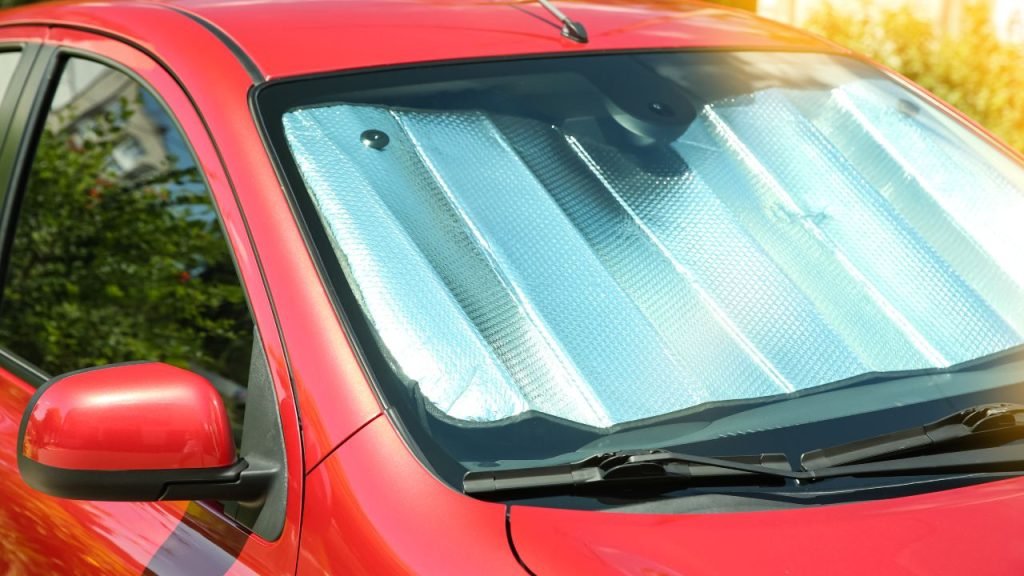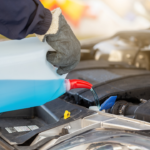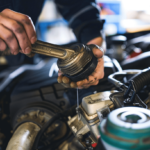Summer is the season of road trips, beach vacations, and long drives in the sun. It’s also the season of hot weather, which can take a toll on your car’s performance and reliability. To ensure that your vehicle runs smoothly throughout the summer months, it’s important to perform regular maintenance and be aware of the most common summer car breakdown problems.
Table of Contents
Explanation of the Importance of Summer Car Maintenance
Regular car maintenance is essential for keeping your vehicle in good condition year-round. However, it becomes even more critical during the summer due to high temperatures and increased usage.
Neglecting to perform routine maintenance can lead to costly repairs or even dangerous breakdowns on the road. Some crucial components that require attention during summer include checking fluid levels such as engine oil, brake fluids as well as coolant levels.
A well-maintained cooling system will aid in preventing overheating problems while on long drives under high temperatures. Other parts that need regular check-up include brakes & brake pads (for safety reasons), air filter (for proper airflow), tire pressure & alignment (to prevent blowouts) among others.
Brief Overview of the Top 5 Most Common Summer Car Breakdown Problems
Knowing which issues are most likely to occur during hot weather can help you prepare for potential breakdowns and take steps to prevent them from happening in the first place. The top five most common summer car breakdown problems are:
- Overheating
- Battery Failure
- Tire Blowouts
- Air Conditioning Issues
- Fuel System Problems
Each of these problems has specific causes, symptoms, prevention methods, and repair options that we’ll cover later in this article. By being aware of these common issues, you can take proactive steps to keep your car running smoothly all summer long.
Problem #1: Overheating
Causes and Symptoms of Overheating
Overheating is one of the most common car problems during summer. It occurs when the engine gets too hot and can no longer function efficiently.
Some causes of overheating include low coolant levels, a faulty radiator, a damaged water pump or thermostat, or a clogged cooling system. If your car’s temperature gauge shows that it’s overheating or if you notice steam coming from under the hood, then it’s likely that your car has an overheating problem.
Some other symptoms of an overheated engine include a loss of power, strange noises coming from the engine bay, or even smoke coming from the engine compartment. Ignoring these warning signs can lead to serious damage to your vehicle’s engine and could require costly repairs.
Tips for Preventing Overheating
Fortunately, there are several things you can do to prevent your car from overheating in the first place. One important step is to make sure that you have enough coolant in your vehicle at all times.
You should also perform regular inspections on your vehicle’s radiator and cooling system to ensure that they are functioning properly. Additionally, it’s important to avoid driving in heavy traffic for extended periods during hot weather since this can cause your engine to work harder than necessary.
Another preventative measure is making sure that all belts and hoses are in good condition since worn-out belts or hoses can lead to leaks which reduces coolant levels causing overheating. Always avoid adding water alone into your coolant reservoir as water alone may not contain essential antifreeze properties required by modern engines.
Steps to Take if Your Car Overheats
If you notice that your car is starting to overheat while driving, there are several steps you should take immediately. First off, pull over and turn off the engine to allow it to cool down. Avoid opening the hood of your car while the engine is still hot as it may cause severe burns.
After the engine has cooled, add coolant to your vehicle’s reservoir or radiator and restart your engine. If your car continues to overheat despite these steps, then it’s important to have it inspected by a professional mechanic as soon as possible to avoid further damage.
Problem #2: Battery Failure
Why Batteries Fail in Hot Weather
Car batteries rely on a chemical reaction to generate power, and high temperatures can speed up the chemical reaction. When the temperature rises above 90 degrees Fahrenheit, the battery’s internal components start to corrode faster, leading to a shorter lifespan of the battery. Additionally, hot weather can increase your car’s electrical demands due to increased use of air conditioning and other electronics, which puts additional strain on your battery.
Signs That Your Battery May Be Failing
It is important to know the warning signs of a failing battery so that you can prevent an unexpected breakdown. One common sign is slow engine cranking or difficulty starting your car.
Another sign is dimming headlights or interior lights when you turn on other electronics such as air conditioning or the radio. A third sign is a bad smell coming from under the hood or corrosion around the battery terminals.
How To Test And Replace A Battery
If you suspect that your battery is failing, it’s important to have it tested by a professional mechanic before replacing it. Many auto parts stores offer free battery testing services as well.
If it turns out that your battery needs replacement, carefully follow these steps:
- Safety First: turn off all electronics and make sure that your car is turned off before beginning.
- Battery Removal: locate and remove the negative (black) terminal first followed by the positive (red) terminal before removing any screws holding down the battery.
- Battery Inspection: check for signs of corrosion around and on top of the old battery.
- Battery Replacement: install your new batter in reverse order from how you removed it (positive cable first, negative cable last).
Taking care of your car’s battery is an essential part of summer car maintenance. By understanding why batteries fail in hot weather, being aware of the warning signs, and following these steps for battery testing and replacement, you can ensure that your car is running smoothly throughout the summer months.
Cause and Warning Signs of Tire Blowouts in Hot Weather
Tire blowouts are one of the most dangerous and alarming types of car breakdowns. They occur when a tire suddenly bursts or loses air pressure, causing the driver to lose control of the vehicle. In hot weather, the risk of tire blowouts increases due to the expansion of air molecules in the tire, leading to increased pressure.
The most common causes of tire blowouts include underinflation, overloading, wear or damage to the tire, and high speeds. There are several warning signs that a driver can look out for to prevent a tire blowout from occurring.
These include vibrations or thumping noises coming from the tires, uneven wear on the tires, cuts or cracks on the sidewalls or treads of the tires, and low tire pressure. If any of these warning signs are detected during regular vehicle maintenance checks or while driving on hot roads, it is important to take immediate action to prevent a potential blowout from occurring.
Tips for Preventing Tire Blowouts
Preventing tire blowouts is crucial for ensuring safe driving during summer months. One key tip is to maintain proper tire pressure by regularly checking your tires with an accurate gauge and inflating them according to manufacturer guidelines. It is also important to avoid overloading your vehicle beyond its recommended weight capacity as this can cause undue stress on your tires.
Additionally, it is recommended that drivers inspect their tires regularly for signs of wear and damage such as cracks or punctures in order to replace them before they fail completely. Proper wheel alignment and balancing can also help reduce stress on your tires and prevent uneven wear that can lead to blowouts.
What To Do If You Experience A Tire Blowout While Driving
Despite taking all necessary precautions, experiencing a tire blowout while driving can be a terrifying experience. The first thing to do is to remain calm and try to keep the vehicle under control.
Do not slam on the brakes, but instead gradually slow down while maintaining control of the steering wheel. Once you have safely slowed down, carefully steer your vehicle to a safe location off the road where you can assess the damage.
If your tire has blown out completely, it will need to be replaced immediately. If a spare tire is available, use it to replace the damaged tire and seek professional assistance as soon as possible.
Remember that preventing tire blowouts is always preferable to dealing with them after they occur. By following these tips and remaining vigilant about vehicle maintenance during hot weather months, drivers can greatly reduce their risk of experiencing a dangerous blowout on the road.
The Importance of a Good Air Conditioner in Summer
When the summer months arrive, the air conditioning system in your car becomes one of the most important components. It’s responsible for keeping you comfortable and safe during long drives on hot days. Unfortunately, air conditioning issues are some of the most common problems that drivers encounter during summer.
There are many factors that can lead to an AC malfunction, but some of the most common reasons include:
- Low refrigerant levels
- Leaks in the AC system
- Faulty compressor or condenser
- Clogged or dirty air filter
If you notice that your AC is not blowing cold or strong enough air, there may be a problem with one or more of these components. Fortunately, there are many troubleshooting tips and tricks that you can use to diagnose and fix these issues yourself.
Troubleshooting Tips for Fixing Air Conditioning Issues
If you suspect that there’s an issue with your car’s AC system, there are several things you can do to try and fix it before taking it to a professional mechanic. Here are some helpful tips:
- Check your refrigerant levels: If your air conditioner is not blowing cold air or is not as strong as it should be, check your refrigerant levels first.
Low refrigerant levels are one of the most common causes of AC malfunctions.
- Clean or replace your AC filter: If the airflow from the vents seems weak or there is no airflow at all, this could be due to a clogged or dirty AC filter.
You can clean or replace this yourself by consulting your owner’s manual.
- Inspect for leaks: If you notice a strange smell coming from your vents while turning on the AC, this could be due to mold growth.
However, it could also be a refrigerant leak. Take your car to a professional mechanic if you suspect there is a leak in your AC system.
When to Seek Professional Help for AC Repairs
If you’ve tried all the troubleshooting tips and tricks, but still can’t get your AC working properly, it’s time to take your car to a professional mechanic. The good news is that most air conditioning issues can be fixed easily and cost-effectively.
However, some repairs may require specific tools or expertise that only a certified mechanic can provide. Don’t wait until the heat becomes unbearable before addressing any air conditioning problems in your car.
It’s important to have your AC system inspected and serviced regularly as part of routine maintenance. This will help avoid unexpected breakdowns and save you money in the long run.
Problem #5: Fuel System Problems
Symptoms of Fuel System Issues During Hot Weather
Hot weather can have a significant impact on the fuel system of a vehicle. Some of the most common symptoms of fuel system issues during hot weather include difficulty starting the engine, rough idling, stalling, and reduced power output.
In some cases, you may also notice that your car is using more fuel than usual or emitting black smoke from the exhaust pipe. It’s worth noting that not all fuel system issues are caused by hot weather alone.
A faulty fuel pump, clogged filter or lines, or a damaged injector can also cause similar symptoms. That’s why it’s essential to diagnose the root cause of any fuel system issue to avoid costly repairs down the road.
Common Causes of Fuel System Problems in the Summer Months
Several factors can contribute to fuel system problems during the summer months. One significant factor is high temperatures, which can cause gasoline to evaporate too quickly in your car’s tank and lead to vapor lock.
This condition occurs when there is insufficient pressure due to excessive heat, preventing gasoline from reaching your engine properly. Ethanol-blended fuels used in many vehicles today can also contribute to summer-related fuel system problems.
Ethanol attracts moisture and absorbs water from the air when exposed for extended periods at high temperatures. Over time, this water buildup can corrode crucial components like fuel injectors and lines and lead to blockages.
How to Diagnose and Fix Fuel System Issues
If you notice any signs of a possible fuel system issue in your vehicle, it’s crucial that you take immediate action before it turns into a more severe problem. The first step is diagnosing what exactly is causing the issue by performing an inspection on key components like lines, filters, injectors or pumps. Once you’ve identified the problem, you can take steps to fix it.
In cases of vapor lock due to high temperatures, try parking your car in the shade or using a heat shield to protect your fuel line and pump from excessive heat. For issues related to water buildup or ethanol corrosion, consider using a fuel additive that helps remove moisture and prevent corrosion.
If you’re unsure of how to diagnose or fix any fuel system issues, it’s always best to seek professional help from a mechanic who has experience with vehicles’ fuel systems. They can help you identify the underlying issue and provide expert advice on how best to resolve it.
Conclusion
In the hot summer months, it is crucial to take steps to prevent common car breakdown problems. Overheating, battery failure, tire blowouts, air conditioning issues, and fuel system problems can all put a damper on your summer plans if not addressed ahead of time. By following the tips provided in this article, you can reduce the likelihood of these issues occurring and keep your car running smoothly all season long.
Recap of the top 5 most common summer car breakdown problems and their solutions
Overheating is a common problem during hot weather and can be avoided by keeping your cooling system properly maintained. Regularly checking coolant levels and replacing old hoses or belts can prevent an overheating disaster.
If your car does overheat while driving, pull over to a safe location as soon as possible and turn off the engine. Battery failure is another issue that can be prevented with proper maintenance.
Check for corrosion around battery connections regularly and make sure that your battery’s voltage is within normal range. If you do experience a dead battery, have jumper cables on hand or call for roadside assistance.
Tire blowouts are more likely to occur when temperatures rise due to increased pressure on tires from expanded air molecules. Be sure to routinely check tire pressure and tread wear to avoid blowouts while driving.
If you do experience a blowout, stay calm and steer in the direction of stability until you can safely come to a stop. Air conditioning issues are frustrating during hot weather but are often fixable with some troubleshooting methods provided in this article.
If those methods fail or if you notice strange noises or odors coming from your AC unit, seek professional help for repair. Fuel systems may experience issues during hot weather due to evaporation or blockages in fuel lines or filters.
Symptoms include poor gas mileage or sputtering while accelerating. In these cases, it is best to bring your car in for professional diagnosis and repair.
Overall, with proper maintenance and preventative measures, common summer car breakdown problems can be avoided. By following the tips outlined in this article, you can ensure a smooth and stress-free driving experience all season long.






